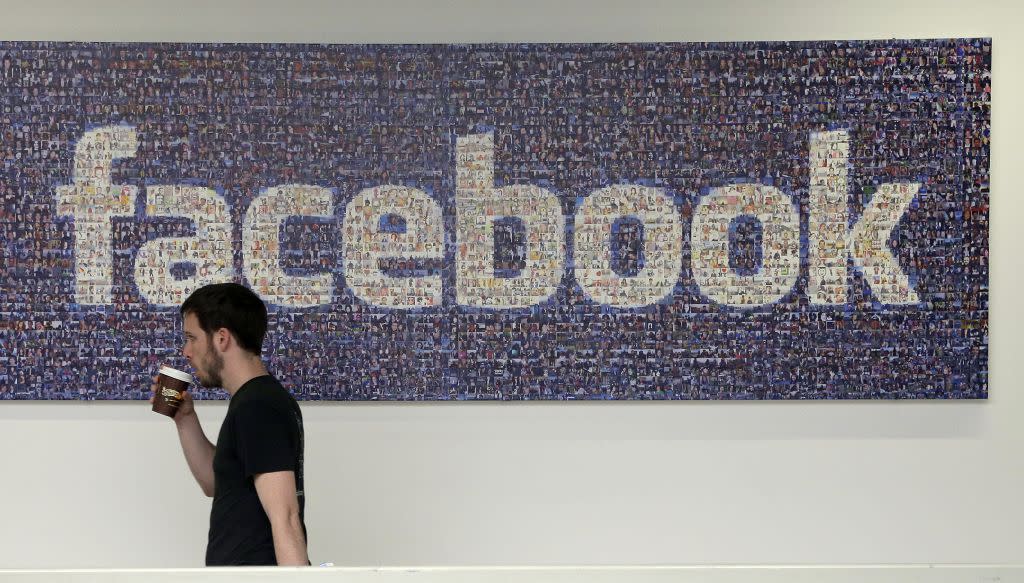Silicon Valley’s obsession with efficiency is fundamentally rooted in sexism

In the tech community, efficiency is a top priority. Whether it’s Soylent (tagline: “Food that frees you!”), Blue Apron kits that take the decision-making out of cooking, or TaskRabbit ads that urge consumers to delegate their drudgery to someone else, the industry seems to have endless ways to free up its workers (and, presumably, give them more time to work).
In many ways, this obsession with efficiency makes sense. In a community where social status is deeply tied to net worth and company valuations, the more work you’re able to get done, the more social capital you’re likely to attain. If you can take the time you were spending thinking about food, or getting dressed, or any of the myriad other micro-decisions that clog up daily life, and dedicate it instead to writing code and getting rich, you’ll be more productive, more profitable, and generally better off.
But what’s often left unsaid in these discussions about efficiency is who’s drawing the line between productive work and time-wasting distractions. Are house cleaning, food prep, and other derided aspects of daily life really just frivolous time sucks? Or is this designation merely the opinion of the well-compensated white men who dominate Silicon Valley—and who may fail to appreciate the way their gender informs their perceptions of what problems need to be solved?
Tech’s efficiency obsession can create a tricky path for women. Consider the problem of fashion. Silicon Valley is widely known for its celebration of a casual aesthetic, with staid business suits swapped out for hoodies and jeans. But industry attitudes towards proper attire aren’t merely a rejection of more traditional standards. They’re also an acceptance, and sometimes a celebration, of the idea that investing energy in fashion runs counter to productivity.
A number of articles have attempted to tie Mark Zuckerberg’s commitment to one signature outfit (a trait he notably shares with Steve Jobs) to his productivity and personal fortune, backing that assertion up with science about “decision fatigue.” As the theory goes, the time that Zuckerberg saves by not thinking about his outfits is time he can spend on getting more important work done. The more energy he reserves for his actual work, the more productive (and, presumably, profitable) he’ll be.
Yet whatever value Zuckerberg and Jobs may have found in streamlining their clothing choice, abandoning a varied wardrobe in the name of efficiency is a lot easier if you happen to be a man. It’s not that women can’t pull the same trick—art director Matilda Kahl penned a piece for Harper’s Bazaar about her dedication to this sartorial strategy. But the expectations placed on women can make doing so a lot more difficult.
As Irene, a marketing director at a Silicon Valley startup, explained to me, even in the relaxed environment of the tech scene, women can’t really get away with giving up on their appearances. Granted, there’s no clear rule requiring women to dress better than their male colleagues, but, as Irene notes, no matter the industry or position, “women, to a varying degree but always more than men, are treated as visual objects.” This is backed up by studies that suggest when women eschew makeup and fashion, they run the risk of being subtly punished as a result.
And that’s even assuming that women want to employ the same strategies to begin with. Importantly, the very idea of efficiency and how best to maximize it is far from a universal concept. Yes, decision fatigue is a real phenomenon, and yes, reducing time spent on tasks that are more exhausting than energizing is generally a good idea. But that doesn’t mean devoting time to deciding what to wear or what to make for dinner is solely a brain drain and not, say, inspiration for further creativity or innovation.
Despite what countless clickbait articles may tell you, there is no one way to foster creativity. So while adopting a daily uniform may be useful for methodical thinkers, it may not be helpful for other types of creatives. As evidenced by this excellent Note to Self episode on Lego kits, free-form activities—like cooking without a recipe, eschewing coloring books for freestyle drawing, and yes, even picking out an outfit to wear each and every morning—have also been shown to inspire outside-the-box thinking.
What does this suggest? Despite the efficiency ethos of start-up culture, women (and, for that matter, men) for whom fashion is a pleasure aren’t wasting their time or using up all their decision-making power on something frivolous. It’s just as likely that they’re investing in an activity that will make them more creative (and, yes, more productive) in the long term.
It’s not shocking that the tech world discourages free-form pursuits that are not a clear means to a specific end. The take-no-prisoners attitude of tech firms and start-ups may foster innovation, creativity, and even beauty at times. But the tech sector’s overarching philosophy remains bent towards treating the human brain and body like a machine that can be tweaked and perfected until it is running at peak efficiency.
Yet again, the definition of what’s efficient and why is a product of the people in power, not science. In fact, there’s no one universal strategy that makes each and every one of us as productive as possible, just as there is no one strategy guaranteed to spark the next big idea. Until the tech industry recognizes that reality, it’ll remain a work environment that’s best suited for one very specific type of individual—and the products it creates will continue to primarily meet the needs of that very same group.
Follow Lux on Twitter @luxalptraum. Learn how to write for Quartz Ideas. We welcome your comments at ideas@qz.com.

Sign up for the Quartz Daily Brief, our free daily newsletter with the world’s most important and interesting news.
More stories from Quartz:

